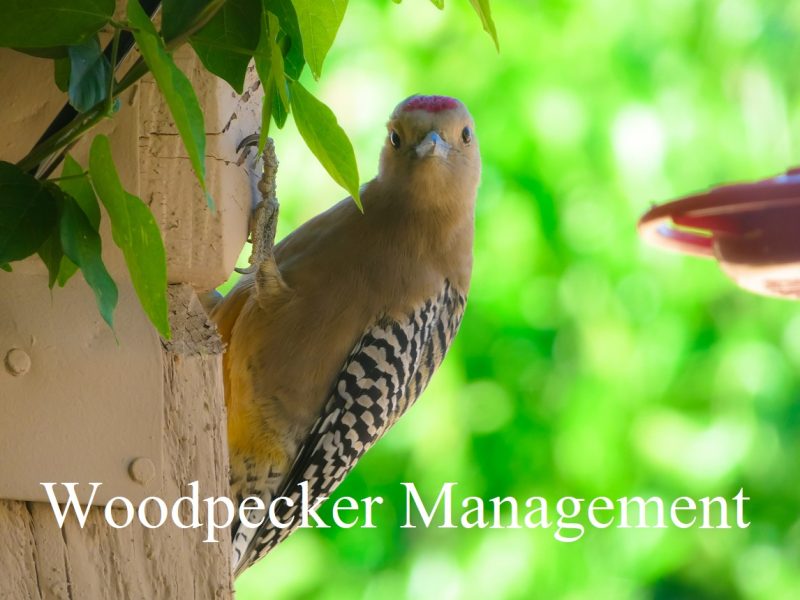
If you live in the woods, you are prone to all sorts of wildlife passing by your home. Insects are looking for warm places to hibernate. If it were not for the cold weather, the insects in your area would overpopulate.
The woodpecker, found in the Eastern and Midwestern United States, does not nest during the winter months. Looking for insects is a difficult task. Their search sometimes drives them to the siding of homes, where they sense heat. Whether Winter or Summer, they can attack with disturbing pecks causing damage to your home. Preserve your home while still protecting the safety of these unique creatures. Woodpecker damage not only can rack up expenses (starting around $300) but allows heat to leak from your home in the winter months. Animals are also attracted to heat this time of year.
If the pecking continues, here are some humane ways to keep a woodpecker at bay:
Woodpeckers can be a nuisance. Prevention is the best way to keep these bright, bouncy birds away from your home. Planting fruit-bearing plants may distract them as well as installing mirrors. These animals are vulnerable to humans and have no understanding that we are nesting in their natural habitat. Respect the Wilderness and protect your home with these recommendations or call your local wildlife foundation for more tips and services.
*In the United States, it is illegal and dangerous to shoot, poison, capture, or harm migratory birds. Atlantic Foundation does not guarantee any of these methods will keep animals away from your home and does accept liability for your practice concerning pest control. We are not licensed in pest control and only speak from research and the experience of an anonymous pest control professional. We do not guarantee your safety or your pet’s safety when practicing the recommended methods. Atlantic Foundation accepts no legal responsibility. All of the recommendations listed here are at your risk. Do your part to support your local ecosystem and keep up with all local, federal, and state laws concerning wildlife and animal welfare.